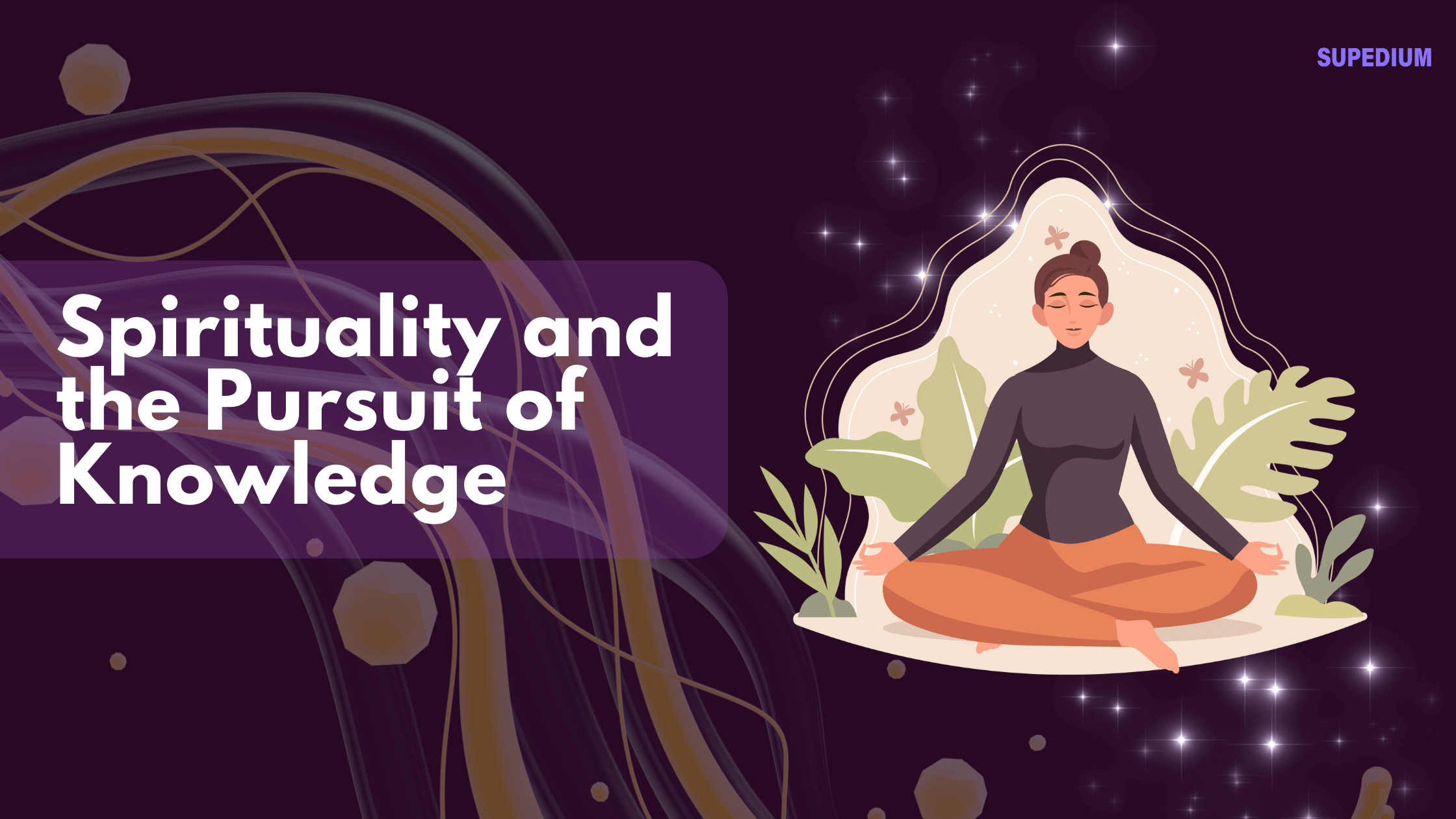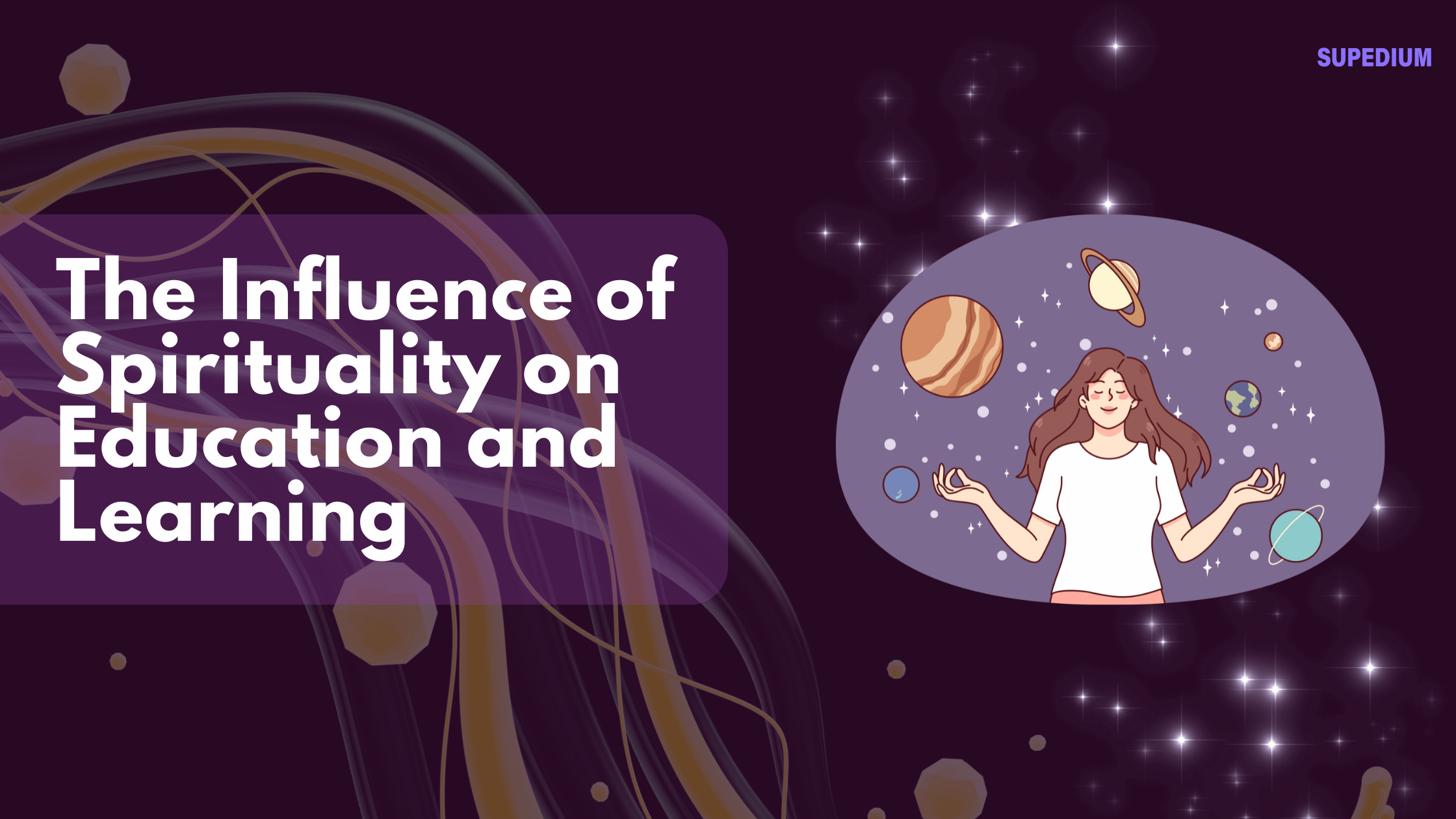Table of Contents
![]()
I. Introduction
Spirituality, often seen as a deeply personal and subjective experience, encompasses a connection to something greater than oneself. It transcends traditional religious boundaries, focusing on individual growth, meaning, and purpose. Knowledge, on the other hand, can be defined in various forms: empirical, theoretical, and experiential. It plays a crucial role in human development, shaping our understanding of the world and ourselves. This article explores the interplay between spirituality and the pursuit of knowledge, arguing that their relationship enriches human understanding and experience.
II. Historical Perspectives
A. Ancient Civilizations
From the dawn of human civilization, spirituality and knowledge have intertwined. Ancient cultures, such as the Egyptians and the Greeks, viewed knowledge as a sacred pursuit. Philosophers like Plato and Confucius sought to understand the universe and our place within it, blending spiritual insights with philosophical inquiry.
B. Religious Traditions and Their Views on Knowledge
Throughout history, major religious traditions have offered varying perspectives on the nature of knowledge. Eastern philosophies like Buddhism and Hinduism emphasize experiential knowledge and self-realization, while Western religions, including Christianity and Islam, often view knowledge as a means to understand divine truths. These traditions advocate for the importance of both spiritual insight and intellectual exploration.
C. The Renaissance and the Enlightenment
The Renaissance marked a significant shift towards humanism and empirical knowledge. During this time, the exploration of the natural world began to flourish, challenging dogmatic beliefs. However, even amidst the rise of science, spirituality found its place. Thinkers like Descartes and Spinoza sought to reconcile faith and reason, highlighting that the pursuit of knowledge could coexist with spiritual beliefs.
III. The Nature of Spiritual Knowledge
A. Different Forms of Spiritual Knowledge
Spiritual knowledge manifests in various ways. Intuitive knowledge arises from inner wisdom and instinct. Mystical experiences, often described as transcendental, provide profound insights into existence. Additionally, philosophical reflections on life and purpose contribute to our spiritual understanding, enriching our knowledge of self and the universe.
B. Spiritual Practices That Enhance Knowledge
Certain spiritual practices are particularly effective in fostering knowledge. Meditation and mindfulness promote clarity of thought, enabling individuals to connect with their deeper selves. Contemplation encourages reflection on profound questions, while sacred texts and teachings from various traditions offer valuable insights that inform one’s spiritual journey.
C. The Role of Community and Tradition
Spiritual communities play a significant role in the pursuit of knowledge. Collective wisdom shared among members fosters a deeper understanding of spiritual concepts. Mentorship and guidance within these communities can enhance individual learning, emphasizing the importance of interpersonal connections in spiritual growth.
IV. The Role of Knowledge in Spiritual Growth
A. Knowledge as a Means of Understanding Self
The pursuit of knowledge is fundamental to personal development. Psychological insights derived from self-reflection and study promote self-awareness, helping individuals understand their motivations, behaviors, and desires. This understanding is crucial for spiritual growth, allowing one to align actions with values.
B. The Quest for Existential Answers
Human beings have an innate desire to seek answers to life’s fundamental questions. Knowledge acquisition plays a vital role in addressing issues of existence, morality, and purpose. This quest often leads individuals to spiritual exploration, where they seek deeper meanings and connections beyond the material world.
C. Integration of Scientific Knowledge
In recent years, the relationship between science and spirituality has garnered significant attention. Advances in scientific discovery often challenge traditional spiritual beliefs, but they can also offer new insights. Understanding the universe through scientific principles can complement spiritual perspectives, leading to a more holistic worldview.
V. Challenges in the Pursuit of Spiritual Knowledge
A. Dogmatism vs. Open-Mindedness
One of the key challenges in merging spirituality and knowledge is the tension between dogmatism and open-mindedness. Spiritual communities may resist new ideas that contradict established beliefs, which can hinder personal growth. Encouraging critical thinking and openness to new insights is essential for a balanced spiritual journey.
B. Balancing Spiritual and Empirical Knowledge
The perceived conflict between spiritual and empirical knowledge can create confusion. While some see them as mutually exclusive, many argue for a harmonious relationship. By integrating both forms of knowledge, individuals can cultivate a more profound understanding of existence and their place within it.
C. Modern Distractions and Their Effects
In the digital age, modern distractions can impede spiritual practices. The constant barrage of information often leads to superficial engagement with spiritual concepts. It is essential to prioritize depth and intentionality in one’s pursuit of both spiritual and intellectual knowledge to foster meaningful growth.
VI. Contemporary Perspectives
A. New Age Spirituality and Knowledge
The New Age movement has brought together diverse spiritual practices and philosophies, promoting a more eclectic approach to spirituality. While this inclusivity fosters openness, it also invites critique regarding the commodification of spiritual knowledge. Authenticity and depth in spiritual practices remain crucial for true understanding.
B. The Role of Education in Fostering Spiritual Awareness
Educational systems are increasingly recognizing the value of integrating spirituality into curricula. By emphasizing holistic development that includes emotional and spiritual growth, educational institutions can nurture well-rounded individuals who pursue knowledge with a sense of purpose.
C. Global Perspectives on Spirituality and Knowledge
In our interconnected world, global perspectives on spirituality and knowledge are vital. Interfaith dialogues encourage the sharing of insights across cultures, fostering a richer understanding of diverse spiritual traditions. This cross-cultural approach highlights the universal quest for knowledge and meaning.
VII. Conclusion
The relationship between spirituality and the pursuit of knowledge is complex and multifaceted. Their interplay enriches human experience, fostering personal growth and understanding. By embracing both spiritual and intellectual pursuits, individuals can navigate life’s challenges with greater depth and clarity. The journey toward knowledge and spirituality is not merely an individual endeavor but a collective exploration of existence, inviting us to connect with ourselves, others, and the universe.
Share This





Be the first to comment